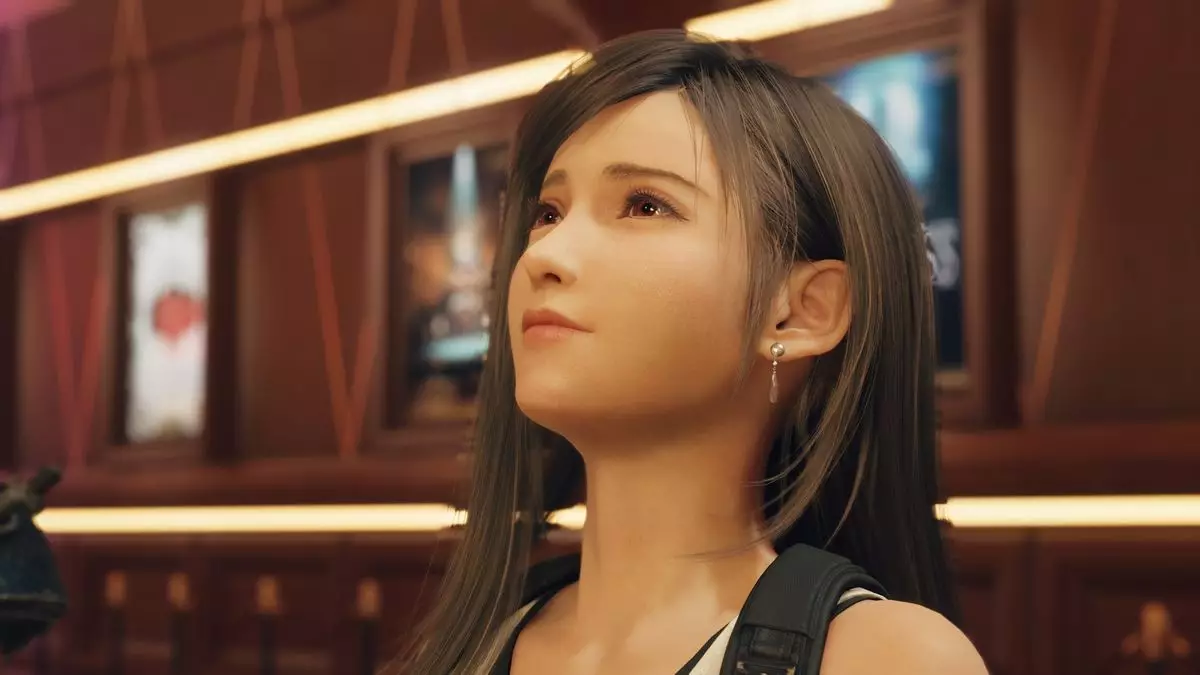In an era where the gaming industry is frequently rattled by layoffs, studio closures, and substantial acquisitions, the importance of team cohesion has never been more evident. Naoki Hamaguchi, the director behind the much-anticipated Final Fantasy 7 Rebirth, recently shared his thoughts on the significance of maintaining a single team over the past decade. During his interview with GamesRadar+ at the Golden Joysticks Awards 2024, where Rebirth claimed four awards, Hamaguchi’s reflections delved into the dynamics of creativity, collaboration, and experience within the gaming realm.
Hamaguchi’s team is not just a group of individuals haphazardly linked together; they represent a well-oiled machine, having cultivated their skills meticulously through collaborative efforts on the Remake trilogy. With the industry’s volatility casting shadows over many studios, their ability to remain intact speaks volumes about their commitment and synergy. “We’ve all adapted and evolved together,” he indicated, shedding light on the intricacies of working closely with the same talent over an extended period. This consistency has allowed them to gather essential knowledge and tackle the myriad challenges that modern game development presents.
Facing the Future: Unwritten Chapters
While the team is still entrenched in finishing the third part of the trilogy, Hamaguchi is already contemplating the future. He acknowledges that the plot for Part 3 is firmly in place, though his uncertainty regarding their next project hints at the fluid nature of game development. “It could lead to the next numbered Final Fantasy or perhaps an entirely new brand,” he mused, epitomizing the spirit of innovation that characterizes the gaming environment.
This ambiguity doesn’t seem to frighten Hamaguchi; rather, it energizes him. His optimism mirrors a broader trend in the industry, where creativity is constantly evolving, and what lies ahead is a canvas waiting to be painted. The beauty of collaborative synergy becomes particularly useful in this scenario, as a team that has grown collectively can bring unparalleled depth and uniqueness to new projects.
Addressing the pressing issues facing many in the industry, Hamaguchi touched upon the acquisition strategies employed by major corporations like Sony and Microsoft. Most notably, he articulated the necessity for established talent in delivering high-quality gaming experiences. “The challenges of high-end game development mean having an experienced team is crucial,” he explained, substantiating why companies prioritize acquiring studios with proven track records over other alternatives.
This point speaks to a larger trend that goes beyond just Final Fantasy. The rapid advancement of game technology and the escalating expectations of players have necessitated a new standard in game development. The escalating costs associated with creating blockbuster games mean that having a team that can navigate these waters is akin to gold. For Hamaguchi and his crew, years dedicated to honing their craft might be pivotal in shaping the success of their projects.
Hamaguchi’s commentary shines a light on the critical strategy of talent retention against an uncertain backdrop. As studios face cutbacks, it becomes increasingly essential for teams to stick together, rallying around shared experiences and knowledge. This retention is not merely about keeping the same faces; it’s about preserving a wealth of understanding that has been nurtured over time.
The ongoing trials in the industry reinforce not just the challenges faced but also the potential for teams like Hamaguchi’s to shatter expectations. With a decade of collaborative growth, their potential for innovation stands strong, and their ambitions for the future seem bright. Their journey underscores the importance of unity within the creative chaos of game development—an inspiring reminder that even in uncertain times, great things can be achieved through teamwork and persistence.
The sentiments shared by Naoki Hamaguchi offer a profound reflection on the current state of the gaming industry. By understanding the importance of unity, experience, and the value of collaboration, both developers and players alike can look forward to a future filled with promise and creativity.

